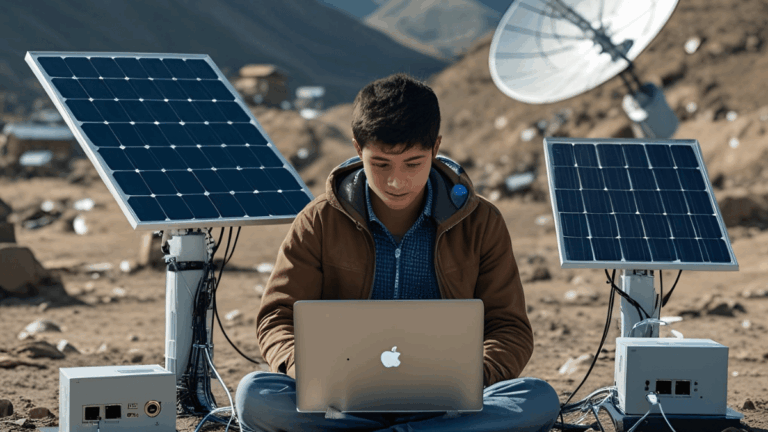The Rise of Ethical Billionaires: Can Wealth and Conscience Coexist in the Modern World?

In an era where wealth inequality and climate crises dominate headlines, a quiet but powerful movement is emerging among the ultra-wealthy — the rise of ethical billionaires. Once considered an oxymoron, the term is gaining traction as a new generation of billionaires challenges the traditional paradigms of capitalism by aligning wealth with purpose.
These are not just philanthropists writing checks from their corner offices. They are individuals actively reshaping the way we think about money, ethics, and impact. From reinvesting profits into renewable energy to advocating for progressive taxation and worker rights, these billionaires are leveraging their resources to serve something greater than personal gain.
But are they truly changing the system — or simply patching it?
The debate is complex. Yet the stories behind this rising movement tell us that something fundamental is shifting in the world of extreme wealth.
Take Yvon Chouinard, the founder of outdoor apparel brand Patagonia. In 2022, Chouinard shocked the business world by transferring ownership of the entire company — valued at over $3 billion — to a trust and a nonprofit dedicated to fighting climate change. “Earth is now our only shareholder,” he said. The company continues to operate for profit, but all proceeds are directed toward environmental restoration and activism. Chouinard didn’t just donate wealth — he restructured ownership to serve the planet permanently.
Similarly, MacKenzie Scott, former wife of Amazon’s Jeff Bezos, has redefined the speed and scale of modern philanthropy. Without establishing a formal foundation, she has distributed over $14 billion to more than 1,600 nonprofit organizations focused on racial equity, education, public health, and climate justice. Her no-strings-attached donations have challenged traditional philanthropic models by giving recipients full autonomy and reducing administrative barriers.
And then there’s Mo Ibrahim, the Sudanese-British telecom billionaire who sold his mobile company Celtel and used the proceeds to establish the Mo Ibrahim Foundation — an initiative focused on good governance and leadership in Africa. His approach is not just about charity; it’s about systemic change, transparency, and strengthening democratic institutions.
These are just a few examples of ethical billionaires using wealth as a means of restoration rather than domination.
But this shift didn’t come out of nowhere. The last two decades have witnessed growing public distrust in unchecked capitalism. Reports on exploitative labor, tax evasion, environmental degradation, and widening wealth gaps have created an environment where ultra-wealthy individuals are increasingly scrutinized. As public awareness rises, so does the expectation for billionaires to act as stewards of progress — not just symbols of privilege.
Enter the concept of conscious capitalism, a philosophy that encourages businesses to serve a higher purpose beyond profit. It promotes stakeholder orientation — considering the needs of employees, communities, suppliers, and the environment. Companies like Tesla, Salesforce, and Ben & Jerry’s have publicly aligned with such values, though critics argue the lines between marketing and mission often blur.
What sets the current wave of ethical billionaires apart is their willingness to disrupt the very system that enabled their wealth. In a notable example, Chamath Palihapitiya, a venture capitalist known for his early role at Facebook, has invested in healthcare and climate startups while advocating for universal basic income and stricter corporate accountability. He’s vocal about de-growth, equitable investing, and long-termism — even if it means lower short-term returns.
Still, not all acts of giving are created equal. Critics caution that billionaire philanthropy can sometimes reinforce existing power imbalances. When private wealth controls public impact, it risks undermining democratic processes. In some cases, “philanthrocapitalism” allows billionaires to claim moral high ground while avoiding taxes or regulatory scrutiny.
This is where transparency becomes crucial. Unlike traditional charities, many billionaire-led foundations are not held to the same standards of public accountability. And while some like Scott and Chouinard are setting new benchmarks in openness and decentralization, others operate behind layers of LLCs and advisory boards.
There is also the question of intent versus effect. For example, Elon Musk, now the world’s wealthiest person, has pledged to donate billions to science and climate causes. Yet, critics argue that his union-busting tactics, social media influence, and inconsistent approach to ESG (Environmental, Social, Governance) raise red flags about the ethics of power concentration.
So, what defines an “ethical billionaire”? It’s not just about donating a percentage of net worth or supporting a pet cause. It’s about redistributing power, enabling equity, and acknowledging that capitalism itself must evolve to serve humanity — not just shareholders.
One notable trend among these ethical billionaires is investing in regenerative and inclusive economies. This includes funding Indigenous-led conservation efforts, backing women- and minority-led startups, and promoting decentralized technologies that empower underserved populations.
Platforms like GIIN – Global Impact Investing Network and B Lab are helping to quantify and verify these efforts. They offer frameworks for assessing environmental and social impact, ensuring that ethics are embedded in business models — not tacked on as CSR campaigns.
At the same time, media is playing a role in redefining narratives around wealth. Documentaries, investigative journalism, and activist reporting are holding billionaires accountable while also highlighting those who are changing the status quo. Outlets like ImpactAlpha and Ethical Consumer now serve as platforms for sharing transparent stories of wealth aligned with values.
As for the next generation, there’s optimism. Family offices — investment firms that manage billionaire wealth — are seeing a shift. Young heirs are demanding portfolios that reflect climate resilience, human rights, and circular economy principles. This intergenerational shift could redefine the long-term function of wealth itself.
Still, systemic change won’t come from individuals alone. Governments and global institutions must also play their part — through progressive taxation, inclusive economic policies, and frameworks that prevent the hoarding of wealth in tax havens. Ethical billionaires can open doors, but institutions must build bridges.
At The Visionary Spark, we believe the world doesn’t need fewer billionaires. It needs better billionaires — those who are willing to interrogate how their wealth was built, redistribute it thoughtfully, and advocate for systems where more people can thrive.
As the climate clock ticks, inequality widens, and civic trust erodes, we must ask: can the world’s most powerful individuals rise to the ethical challenge of our time?
The answer may determine whether wealth remains a force of extraction — or evolves into a catalyst for global renewal.



